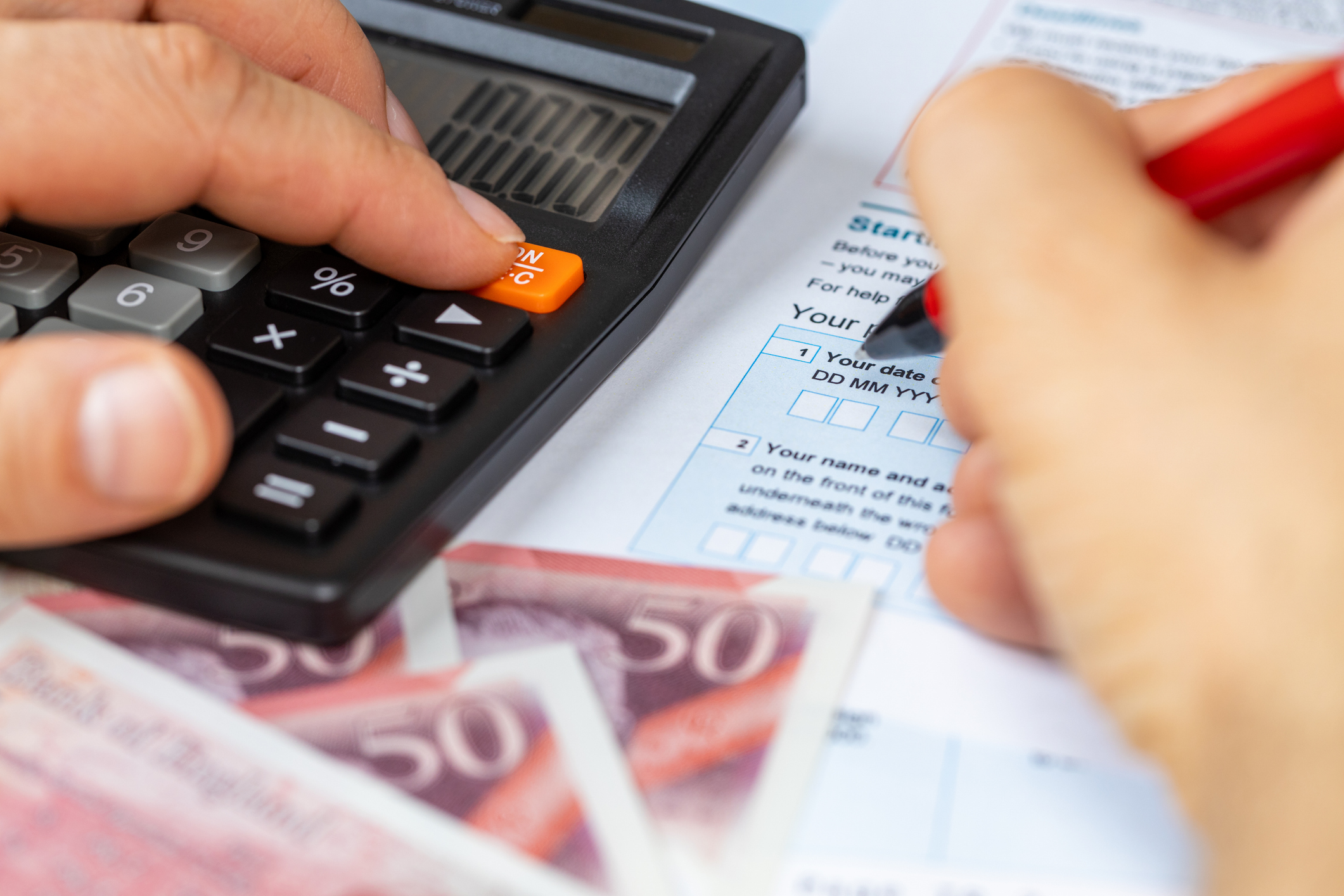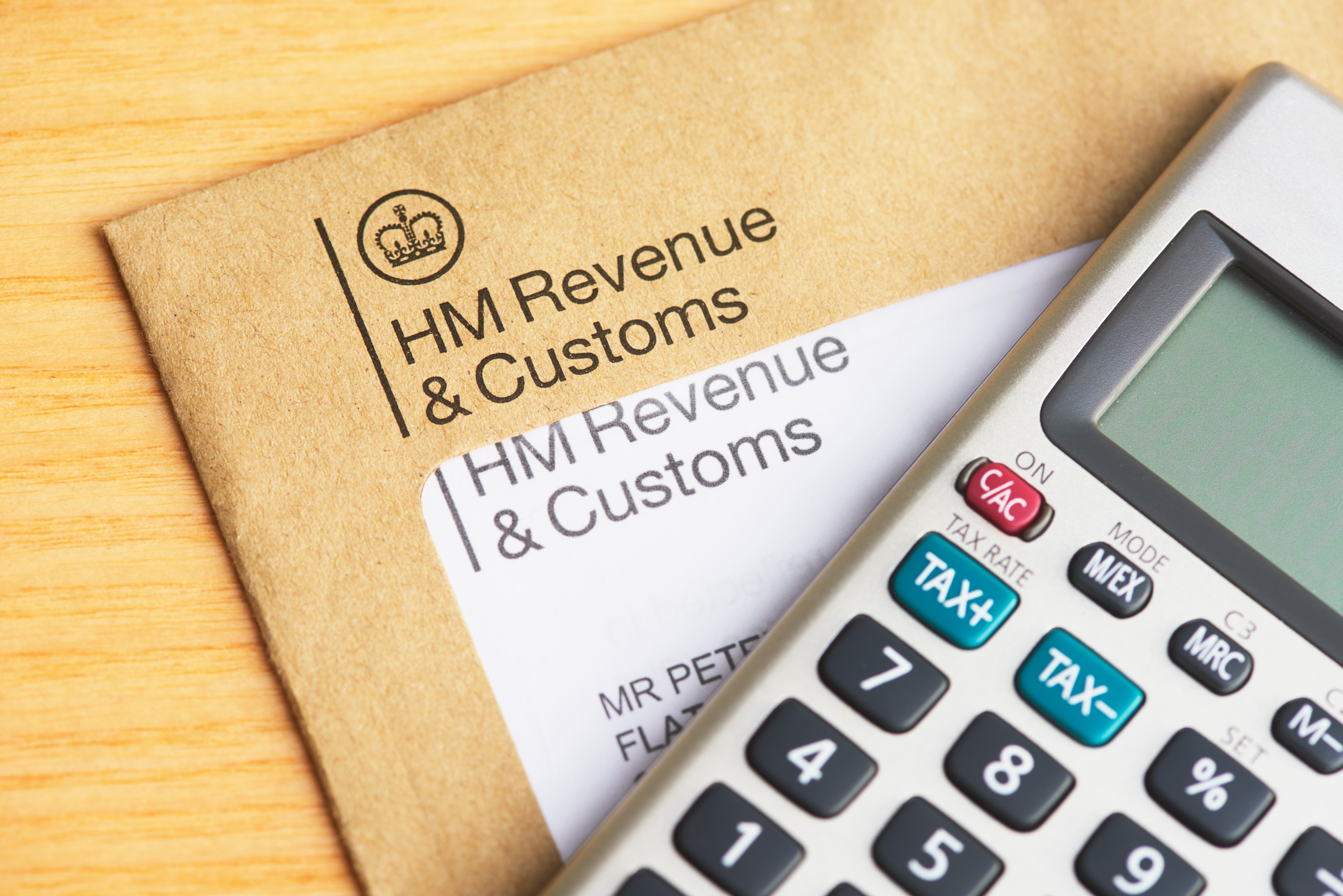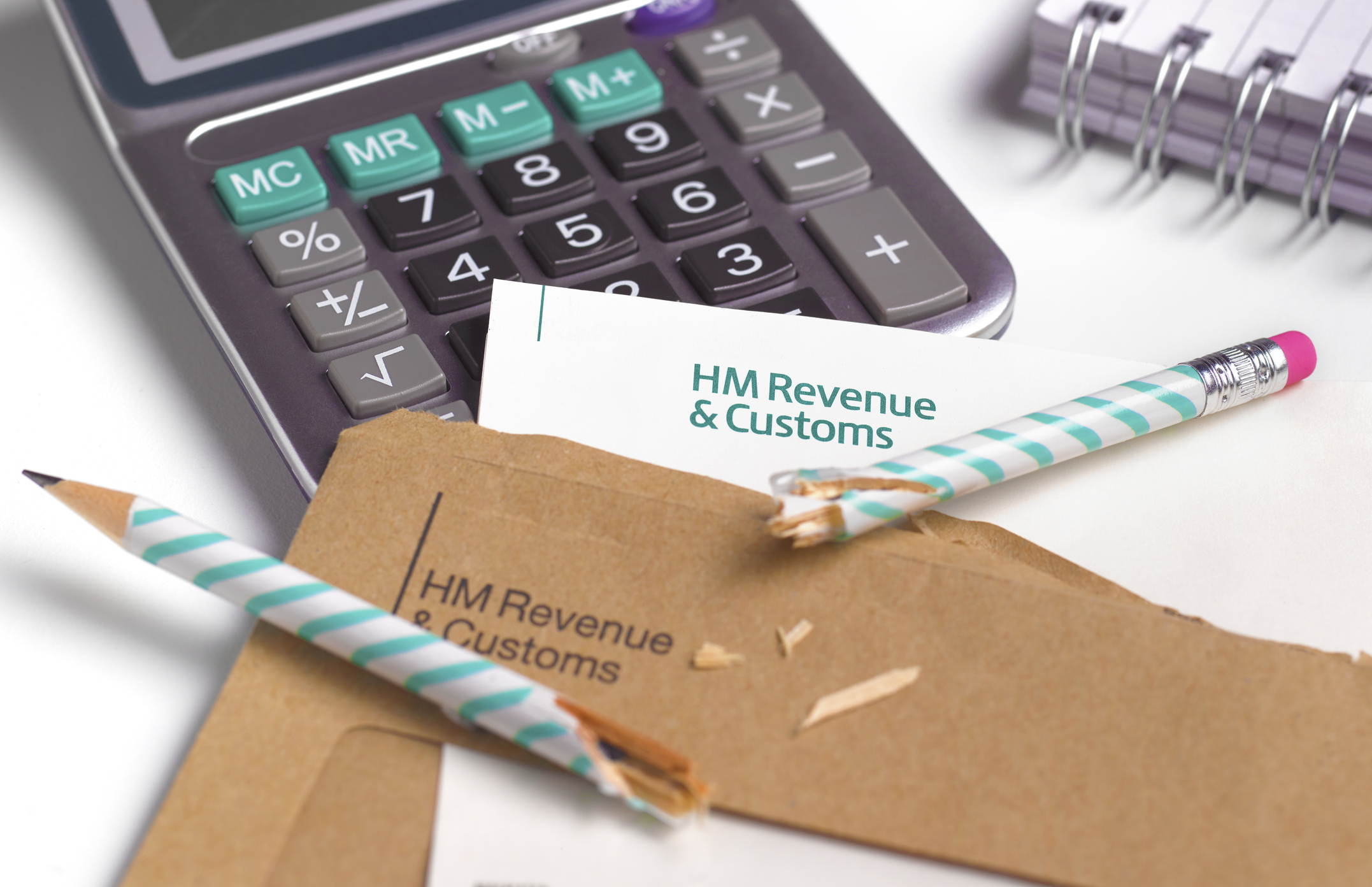Pension tax refunds: how to get your money back if you have been overcharged
Thousands of retirees recovered more than £48.5 million in overpaid tax from flexible pension withdrawals in the third quarter of 2025. Are you due a pension tax refund?


Get the latest financial news, insights and expert analysis from our award-winning MoneyWeek team, to help you understand what really matters when it comes to your finances.
You are now subscribed
Your newsletter sign-up was successful
Want to add more newsletters?

Twice daily
MoneyWeek
Get the latest financial news, insights and expert analysis from our award-winning MoneyWeek team, to help you understand what really matters when it comes to your finances.

Four times a week
Look After My Bills
Sign up to our free money-saving newsletter, filled with the latest news and expert advice to help you find the best tips and deals for managing your bills. Start saving today!
Pensioners have recovered millions from HMRC after being taxed too much when making flexible pension withdrawals in the last three months.
Pensioners reclaimed more than £48.5 million in overpaid tax on their pension withdrawals from 1 July to 30 September 2025, new data from HMRC shows.
The total number of retirees putting in a claim for tax repayment was 13,721 in the third quarter of 2025, 11% more than the 12,331 claims processed by HMRC in the same period last year.
MoneyWeek
Subscribe to MoneyWeek today and get your first six magazine issues absolutely FREE

Sign up to Money Morning
Don't miss the latest investment and personal finances news, market analysis, plus money-saving tips with our free twice-daily newsletter
Don't miss the latest investment and personal finances news, market analysis, plus money-saving tips with our free twice-daily newsletter
The average amount of incorrectly levied tax returned to pensioners was £3,539 per person in the last quarter, down slightly from an average of £3,592 this time last year.
The risk presents itself when you first access your pension pot. HMRC taxes your first withdrawal on a ‘month one’ basis, meaning it assumes you will withdraw the same amount every month for the rest of the tax year. An emergency tax code is applied at this stage.
The problem is not everyone withdraws a regular income from their pension. Some savers decide to make a large one-off withdrawal at the start of retirement, or alternatively tap into their retirement pot as and when they need to.
HMRC will usually set things straight at the end of the tax year without you having to do anything – however there are steps you can take to get your money back more quickly, or to avoid being overcharged by a large amount in the first place.
The latest figures bring the total amount that retirees have claimed back from overtaxation to more than £1.5 billion since 2015, when pension freedoms and flexible pension withdrawals were first introduced.
This huge sum highlights the extent of the overtaxation problem with flexible pension withdrawals.
Jon Greer, head of retirement policy at Quilter, said: “A decade after the introduction of pension freedoms, it remains extraordinary that thousands of people are still being overtaxed every quarter simply for accessing their own savings. The system continues to work against the very flexibility it was designed to promote.
“Although HMRC has made changes to speed up repayments, these figures show the underlying problem persists. The PAYE system was built for regular employment income, not one-off pension withdrawals, and it continues to cause unnecessary complexity for retirees.”
These figures “are likely to only be the tip of the iceberg”, according to Tom Selby, director of public policy at AJ Bell, because the onus is on pensioners to recognise the overtaxation and fill out HMRC’s relevant reclaim forms
“In reality, many will be reliant on HMRC putting their affairs in order at the end of the tax year,” he said.
Why are pensioners overtaxed on withdrawals?
The reason so much tax is incorrectly collected from pensioners is because of the way HMRC calculates tax allowances.
HMRC taxes the first flexible pension withdrawal made in a tax year on a ‘month one’ basis.
“This means HMRC divides your usual tax allowances by 12 and applies them to the withdrawal, landing hard-working savers with shock tax bills often running into thousands of pounds," says Selby at AJ Bell.
“While those who take a regular income or make multiple withdrawals during the tax year should be put right automatically by HMRC, anyone who makes a single withdrawal will likely be left out of pocket.”
This issue has been exacerbated by increases to the state pension – the full new state pension now consumes almost all of the £12,570 personal allowance, which has been frozen since 2022 (a phenomenon known as fiscal drag).
Greer at Quilter says: “With the allowance frozen and the state pension rising each year, many people are being dragged into the tax net. When they make flexible withdrawals to top up their income, a larger portion is now taxable, compounding the frustration when over-deductions occur.”
What to do if you think you are owed money from pension overtaxation
If you are taking a regular stream of income through pension drawdown, you shouldn’t need to do anything. HMRC should adjust your tax code throughout the year to ensure you have paid the correct amount of tax overall.
If you make a one-off, ad hoc withdrawal, and think the taxman has taken more than needed, you can submit a form to reclaim the overpaid tax. You will need to select one of three forms.
The form you will need to fill out will depend on how you accessed your retirement pot:
- If you’ve emptied your pot by flexibly accessing your pension and are still working or receiving benefits, you should fill out form P53Z
- If you’ve emptied your pot by flexibly accessing your pension and aren’t working or receiving benefits, you should fill out form P50Z
- If you’ve only flexibly accessed part of your pension pot, then use form P55
These forms can be found on the government website.
Provided your request is genuine and HMRC works out they incorrectly taxed you, you will get your money back within 30 days.
If you believe you were taxed too much but do not fill out the relevant forms, you will be left relying on HMRC to repay the tax overpayment at the end of the tax year.
Selby at AJ Bell says retirees who take regular flexible pension withdrawals multiple times a year should not need to take any action as HMRC adjusts your tax code to ensure you are taxed correctly over the course of the year.
“However, if you make a single withdrawal then you will either need to fill out one of three forms or rely on HMRC putting you in the correct position at the end of the tax year,” Selby explains.
Will HMRC reforms reduce overtaxation?
HMRC updated its system from April 2025 to move savers onto the correct tax code more quickly.
Despite this, limitations mean the changes will only improve things for those taking a regular income. Those who make a one-off withdrawal will continue to be overtaxed.
Some experts believe the changes do not go far enough.
“We have only just blown out the candles on the cake celebrating 10 years of pension freedoms,” said Tom Selby, director of public policy at investment platform AJ Bell. “It is simply unacceptable that after all this time, the government has still not managed to adapt the tax system to cope with the fact Brits are able to access their pensions flexibly from age 55.”
Thankfully, there are some steps savers can take to reduce the impact of a shock tax deduction. For example, experts often recommend making a small withdrawal first. HMRC should then apply a more appropriate tax code to any subsequent larger withdrawals.
Taxpayers who find themselves submitting a reclaim form for a large amount of money may not have been aware of this tip.
For example, some of the savers highlighted by Royal London reclaimed more than £100,000 in overpaid tax in 2023/24. To generate an emergency bill of this size, they would need to have withdrawn more than £300,000 when first accessing their pension.
Savers do ultimately get this money back from HMRC. Even if they don’t actively claim it, things should get settled up automatically at the end of the tax year. Despite this, delays (or alternatively form filling) can be inconvenient and disrupt your immediate plans.
“Suddenly, that large chunk of money which had been earmarked for something special, like a new kitchen or the holiday of a lifetime, has shrunk considerably, and in some cases these plans may have to be postponed or abandoned altogether,” said Clare Moffat, pension expert at Royal London.
“If these withdrawals are being made to help children or grandchildren get a foot on the housing ladder, then the effect can be to derail a home purchase at the last minute when it’s discovered that the money required to complete the purchase has suddenly been eroded.”
Get the latest financial news, insights and expert analysis from our award-winning MoneyWeek team, to help you understand what really matters when it comes to your finances.

Daniel is a financial journalist at MoneyWeek, writing about personal finance, economics, property, politics, and investing.
He covers savings, political news and enjoys translating economic data into simple English, and explaining what it means for your wallet.
Daniel joined MoneyWeek in January 2025. He previously worked at The Economist in their Audience team and read history at Emmanuel College, Cambridge, specialising in the history of political thought.
In his free time, he likes reading, walking around Hampstead Heath, and cooking overambitious meals.
-
 Should you buy an active ETF?
Should you buy an active ETF?ETFs are often mischaracterised as passive products, but they can be a convenient way to add active management to your portfolio
-
 Power up your pension before 5 April – easy ways to save before the tax year end
Power up your pension before 5 April – easy ways to save before the tax year endWith the end of the tax year looming, pension savers currently have a window to review and maximise what’s going into their retirement funds – we look at how
-
 Two million taxpayers to be hit by £100k tax trap by 2026/27
Two million taxpayers to be hit by £100k tax trap by 2026/27Frozen thresholds mean more people than ever are set to pay an effective income tax rate of 60% as their earnings increase beyond £100,000. We look at why, as well as how you can avoid being caught in the trap.
-
 13 tax changes in 2026 – which taxes are going up?
13 tax changes in 2026 – which taxes are going up?As 2026 gets underway, we look at what lies ahead in terms of changes to tax rates and allowances this year and how it will affect you.
-
 How to limit how much of your Christmas bonus goes to the taxman
How to limit how much of your Christmas bonus goes to the taxmanIt's Christmas bonus season but the boosted pay packet may mean much of your hard-earned reward ends up with HMRC instead of in your pocket
-
 Over 1 million pay 45% rate of income tax as fiscal drag bites
Over 1 million pay 45% rate of income tax as fiscal drag bitesHundreds of thousands more people are being pushed into the additional rate tax band by fiscal drag
-
 'I've used my annual ISA allowance. How can I shield my savings from tax?'
'I've used my annual ISA allowance. How can I shield my savings from tax?'As millions face paying tax on savings interest, we explore how to protect your money from the taxman. If you've used up your ISA allowance, we look at the other tax-efficient options.
-
 Simple assessment explained as millions brace for unexpected tax bills
Simple assessment explained as millions brace for unexpected tax billsIncreasing numbers of people could get letters from HMRC saying they owe more tax due to frozen thresholds, under a system known as simple assessment. Here is what it means for you.
-
 What are wealth taxes and would they work in Britain?
What are wealth taxes and would they work in Britain?The Treasury is short of cash and mulling over how it can get its hands on more money to plug the gap. Could wealth taxes do the trick?
-
 When is the self-assessment tax return deadline?
When is the self-assessment tax return deadline?If you are self-employed, rent out a property or earn income from savings or investments, you may need to complete a self-assessment tax return. We run through the deadlines you need to know about